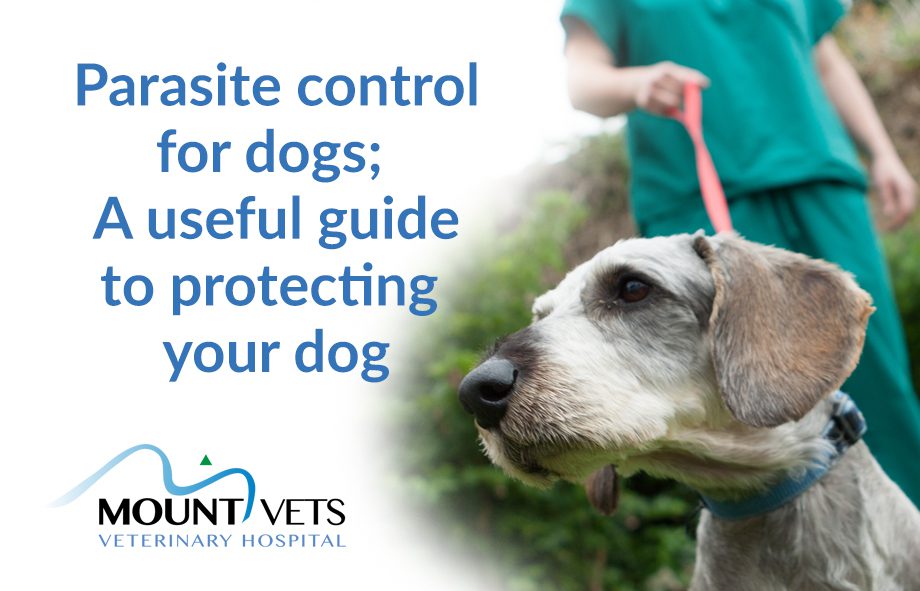Parasite control in dogs:
There are two categories of parasites that can affect your dog – endoparasites (worms) and ectoparasites (fleas, ticks and ear mites)
What are Endoparasites?
Endoparasites live within your dog and include roundworms, tapeworms, hookworms and whipworms.
Puppies can have roundworms (Toxocara canis) from as young as 2 weeks of age. This roundworm can be spread to the pup from their mother’s milk. This type of roundworm can also infect children. Therefore it is vital to worm your puppy every 2 – 3 weeks from 2 weeks of age.
The most common tapeworm of dogs is Dipylidium and is transmitted by fleas. Any dog that has had exposure to fleas will be infected. Other tapeworm species can infect dogs through scavenging, hunting or eating uncooked meat.
Whipworms and hookworms can cause diarrhoea and skin irritation in dogs and can infect humans leading to skin disease.
It is almost impossible to stop your puppy from coming into contact with worms throughout its life and worms can live within your dog without your knowledge. Different worms can also pose risks to humans and children. A regular worming regime tailored to your dog’s needs and lifestyle will help protect the health of your dog and family and reduce contamination of the environment.
The British Small Animal Veterinary Association (BSAVA) recommends all pets are wormed at least every 3 months. However, young animals and those in a higher risk environment may require worming more regularly.
Our staff will be pleased to advise you about a suitable worming regime for your needs. Give us a call on 01823 662286 and book an appointment with a vet.
What are Ectoparasites?
Ectoparasites live on your dog’s skin and include fleas, ticks and ear mites.
Fleas transmit one of the dog tapeworms as well as causing intense irritation and scratching. Some dogs will become sensitised or allergic to flea saliva leading to a syndrome called “flea allergic dermatitis”. High flea burdens in puppies can lead to anaemia (low numbers of red blood cells) and in severe cases death.
One flea can lay vast numbers of eggs which survive in the household for up to two years. Once these eggs hatch your home will be contaminated with a high population of fleas. Just a few fleas can become a huge infestation with a very short time!
It is important to treat your home regularly with a suitable spray to control the flea population.
Ticks are parasites that can live on or off the host. They commonly attach to the ears, face or abdomen to feed on the dog’s blood.
Ticks are common in woodland, moorland and rough grazing and can transmit Lyme Disease (Canine Borreliosis).
Ear mites commonly affect young puppies. They are transmitted from animal to animal via close contact and live on the skin of the outer ear canal. They cause irritation to the ear canal leading to excessive wax, scratching and head shaking. If you suspect your puppy has ear mites please arrange an examination at the Practice, as effective and easy to use treatments are available.
Regular ectoparasite treatment can prevent infestations developing and will reduce the risk to your dog from other diseases.
Our staff will be pleased to advise you about the most appropriate ectoparasite control for your needs. Give us a call on 01823 662286 and book an appointment with a vet.


